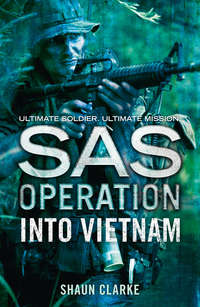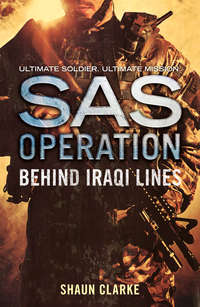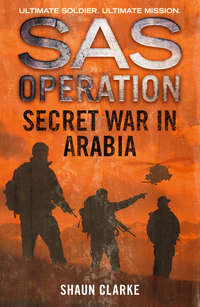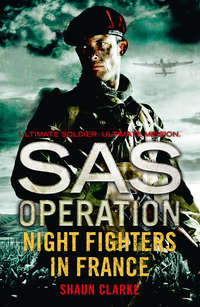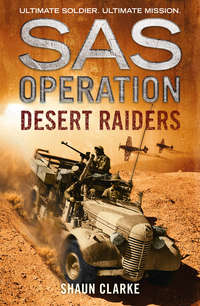
Полная версия
Sniper Fire in Belfast
They entered what looked like a normal army compound, surrounded by high walls of corrugated iron, with watch-towers and electronically controlled gates guarded on both sides with reinforced sangars. These stone walls were high because the IRA’s flavour of the month was the Russian-made RPG 7 short-range anti-tank weapon, which could hurl a rocket-propelled grenade in an arc with an effective range of 500 metres. With walls so high, however, the IRA would have to come dangerously close to the base before they could gain the required elevation for such an attack. The walls kept them at bay.
‘Another bleak day in Armagh,’ Cranfield said. ‘God, what I’d give for some sunshine and the taste of sangria!’
‘In January in Northern Ireland,’ Dubois replied, ‘I can’t even imagine that. But I know that I’d prefer the heat of Oman to this bloody place.’
‘Some of the others arriving next week have just come from there,’ Cranfield said, ‘which means they’ll be well blooded, experienced in desert survival, filled with the humane values of the hearts-and-minds campaign…’ – he paused for dramatic effect – ‘and completely out of sorts here.’
‘Yes,’ Dubois agreed glumly. ‘We’ll have to firm them up quickly. And being attached to us won’t make them too happy either. They’ll think they’ve been RTU’d back to the regular Army.’
‘They should be so lucky!’ Cranfield exclaimed, shaking his head and chuckling ruefully. ‘We should all be so lucky! Instead, we’re with 14 Intelligence Company, in the quicksand of too many conflicting groups. We’re neither here nor there, Jeremy.’
‘No, I suppose not.’
Though 14 Intelligence Company was a reconnaissance unit, it had been given the cover title, 4 Field Survey Troop, Royal Engineers, but was also known as the Northern Ireland Training and Tactics team. Located in the army compound Dubois and Cranfield were visiting, it was equipped with unmarked, civilian ‘Q’ cars and various non-standard weapons, including the Ingram silenced sub-machine-gun. The camp was shared with a British Army Sapper unit.
‘Look,’ Cranfield said impatiently as they crossed the parade ground, from the barracks to the motor pool, in the pearly-grey light of morning, ‘what we’re doing isn’t that unusual. I mean, six months ago we crossed the border to pick up an IRA commander and deposit him back in Northern Ireland, to be arrested by the RUC and brought to trial. Though a lot of people cried out in protest, that murderous bastard eventually got thirty years. Was it worth it or not?’
‘It was worth it,’ Dubois admitted, studying the low grey sky over the green fields of Armagh and longing for a holiday in the sun, as Cranfield had suggested.
‘Right,’ Cranfield said as they entered the busy motor pool, which reeked of petrol and was, as usual, filled with the roaring of engines being tested. ‘Since that damned power struggle between Five and Six, Major Fred has repeatedly crossed the border wearing dirty jeans, bearded, and carrying a false driving licence issued in Dublin. We’re not alone in this, Jeremy.’
‘Major Fred’ was an MI0 attached to Portadown Police HQ. Almost as disdainful of MI5 and MI6 as was Cranfield, he was also as daring in defying both of those organizations and going his own way. As the value of what he was doing had yet to be ascertained, Cranfield’s citing of him as an example of what was admirable in the muddy, dangerous waters of intelligence gathering in bandit country was in no way encouraging to Dubois.
‘I’m not interested in Major Fred,’ he said. ‘Let him worry the Portadown lot. I’m only interested in 14 Intelligence Company and how it might be adversely affected by what you’re planning to do.’
‘There won’t be any adverse effects. We’ve had those already. We can’t do any worse than ten murdered and one suicide. At the very least we’ll deny the IRA what they think is a propaganda victory. It’s not purely personal.’
I’ll bet, Dubois thought. ‘I just wish the ceasefire hadn’t ended,’ he said, not wanting his silence to reveal that he was actually nervous.
‘Why?’ Cranfield replied. ‘It was all nonsense anyway, inspired by the usual, idiotic rivalry between MI5 and MI6. I mean, what did it all amount to? During a raid on an IRA headquarters in Belfast, security forces discover a “doomsday” contingency plan for counter-attack on Protestant areas should there be a repetition of August ’69. Dismayed, the Foreign Office, including MI6, seeks a political solution that involves secret contacts with the IRA. The IRA plays along. As they do so, MI5 insist that the terrorists are merely seeking a breathing space. Knowledge of the doomsday plan then gives MI5 a perfect chance to discredit political contacts. Bingo! The ceasefire collapses and we’re back in business. Pull the plug on MI5 and we’d all live in a better world.’
They stopped by a red Morris Marina, one of the Q cars, equipped with a covert radio and modified to hide a wide variety of non-standard weapons and Japanese photographic equipment. Two British Army sergeants known to Dubois – both in civilian clothes – were leaning against the side of the car, smoking cigarettes. They straightened up when Dubois and Cranfield approached, though neither man saluted.
‘Sergeant Blake,’ Dubois said, nodding by way of welcome. ‘Sergeant Harris,’ He nodded in the direction of Cranfield. ‘This is Lieutenant Cranfield of the SAS, in charge of this mission.’
Both men nodded at Cranfield, neither saying a word.
‘You’ve been briefed?’ Cranfield asked.
‘Yes, sir,’ Sergeant Harris said. ‘We’re not bringing him back. It’s terminal. He stays where he lies.’
‘Correct,’ Cranfield said. ‘So let’s get going.’
Sergeant Harris was the driver, with Cranfield sitting in the front beside him. As Dubois took his seat in the back, beside Sergeant Blake, he thought of just how confused were the issues of this conflict and how easily men like Cranfield, even himself, could be driven to taking matters into their own hands, as they were doing right now.
Still, it had been a rather bad year: the humiliating fall of the Tory government; the creation of a non-elected, supposedly neutral power-sharing executive to replace direct rule of Ulster from London; the collapse of that executive under the intimidation of the Ulster Workers’ strike and IRA violence, including the horrendous Birmingham pub massacre; the Dublin bombing; an IRA truce through Christmas and New Year of 1974-5, and finally the collapse of that truce. Now the SAS was being officially brought in, hopefully to succeed where the regular Army had failed. Dubois was mildly offended.
Sergeant Harris started the car and headed away from the motor pool, driving past rows of Saracen armoured cars, troop trucks, tanks, as well as other Q cars, most of which were visibly well used. The road led around to where the Lynx, Wessex and Army Westland Scout helicopters were taking off and landing, carrying men to and from the many OPs, observation posts, scattered on the high, green hills of the province and manned night and day by rotating, regular army surveillance teams. It was a reminder to Dubois of just how much this little war in Northern Ireland was costing the British public in manpower and money.
‘I still don’t see why they had to bring in the SAS,’ he said distractedly as the Q car approached the heavily guarded main gate. ‘I mean, every Army unit in the province has Close Observation Platoons specially trained for undercover operations – so why an official, full complement of SAS?’
‘The main problem with your COPS,’ Cranfield replied, meaning the Close Observation Platoons, ‘is that the men simply can’t pass themselves off as Irishmen, and have, in fact, often got into trouble when trying to. Since our men are specially trained for covert operations, they can act as watchers without coming on with the blarney and buying themselves an early grave.’
There was more to it than that, as Dubois knew from his Whitehall contacts. The decision to send the SAS contingent had been taken by Edward Heath’s government as long ago as January 1974. The minority Labour government elected six weeks later – Harold Wilson’s second administration – was not informed when elements of B Squadron 22 SAS were first deployed to Northern Ireland at that time.
Unfortunately, on 26 January 1974, a former UDR soldier named William Black was shot and seriously wounded by security forces using a silenced sub-machine-gun. When Black was awarded damages, the SAS came under suspicion. The soldiers, not trained for an urban anti-terrorist role and fresh from the Omani desert, had not been made aware of the legal hazards of their new environment.
Worse was to come. B Squadron’s contingent was withdrawn abruptly from Ireland after two of its members attempted to rob a bank in Londonderry. Both men were later sentenced to six years’ imprisonment, though their just punishment hardly helped the image of the SAS, which was being viewed by many as a secret army of assassins, not much better than the notorious Black and Tans of old. Perhaps for this reason, the presence of the SAS in Ireland during that period was always officially denied.
Nevertheless, when Dubois had first arrived in the province to serve with 4 Field Survey Troop, he found himself inheriting SAS Lieutenant Randolph ‘Randy’ Cranfield as his deputy, or second-in-command. At first, Dubois and Cranfield had merely visited Intelligence officers in the Armagh area, including ‘Major Fred’ in Portadown, lying that they were under the direct orders of SIS (MI6) and Army HQ Intelligence staff. When believed by the naive, they asked for suggestions of worthwhile intelligence targets. This led them to make illicit expeditions across the border, initially just for surveillance, then to ‘snatch’ IRA members and return them at gunpoint to Northern Ireland to be ‘captured’ by the RUC and handed over for trial in the north. Now they were going far beyond that – and it had Dubois worried.
‘At least your lot have finally been committed publicly to Northern Ireland,’ he said to Cranfield as the car passed between the heavily fortified sangars on both sides of the electronically controlled gates. ‘That might be a help.’
‘It’s no more than a public relations campaign by the Prime Minister,’ Cranfield said with his customary cynicism as the car passed through the gates, which then closed automatically.
‘Paddy Devlin’s already described it as a cosmetic exercise, pointing out, accurately, that the SAS have always been here.’
That was true enough, Dubois acknowledged to himself. Right or wrong, the recent decision to publicly commit the SAS to Northern Ireland had been imposed by the Prime Minister without warning, even bypassing the Ministry of Defence. Indeed, as Dubois had learnt from friends, Home Secretary Merlyn Rees had already secretly confessed that it was a ‘presentational thing’, a melodramatic way of letting the public know that the most legendary group of soldiers in the history of British warfare were about to descend on Northern Ireland and put paid to the IRA.
‘What the Downing Street announcement really signalled,’ Dubois said, still trying to forget his nervousness, ‘was a change in the SAS role from intelligence gathering to combat.’
‘Right,’ Cranfield replied. ‘So don’t feel too bad about what we’re doing. Just think of it as legitimate combat. You’ll sleep easier that way.’
‘I hope so,’ Dubois said.
As the gates clanged shut behind the Q car, Sergeant Harris turned onto the road leading to the border, which was only a few miles from the camp. Once the grim, high walls of corrugated iron were out of sight, the rolling green hills came into view, reminding Dubois of how beautiful Northern Ireland was, how peaceful it always looked, away from the trouble spots.
This illusion of peace was rudely broken when his observant eye picked out the many overt OPs scattered about the hills, with high-powered binoculars and telescopes glinting under makeshift roofs of camouflaged netting and turf, constantly surveying the roads and fields. It was also broken when armoured trucks and tanks, bristling with weapons, trundled along the road, travelling between the border and the army camp.
After driving for about ten minutes they came to the British Army roadblock located two miles before the border. Sergeant Harris stopped to allow the soldiers, all wearing full OGs, with helmets and chin straps, and armed with SA-80 assanlt rifles, to show their papers. Presenting their real papers, as distinct from the false documents they were also carrying for use inside the Republic, they were waved on and soon reached the border. To avoid the Gardai – the police force of the Republic of Ireland – they took an unmarked side road just before the next village and kept going until they were safely over the border. Ten minutes later they came to a halt in the shady lane that led up to O’Halloran’s conveniently isolated farmhouse.
‘He can’t see us or hear from here,’ Cranfield said, ‘and we’re going the rest of the way by foot. You wait here in the car, Sergeant Harris. No one’s likely to come along here, except, perhaps, for some innocent local like the postman or milkman.’
‘And if he does?’
‘We can’t afford to have witnesses.’
‘Right, sir. Terminate.’
Cranfield glanced back over his shoulder at Captain Dubois, still in the rear seat. ‘Are you ready?’
‘Yes.’
‘Good, let’s go. You too, Sergeant Blake.’
Cranfield and Dubois unholstered their 9mm Browning High Power handguns as they got out of the car. Sergeant Blake withdrew a silenced L34A1 Sterling sub-machine-gun from a hidden panel beneath his feet and unfolded the stock as he climbed out of the car to stand beside the other two men. After releasing their safety-catches, the men walked up the lane, away from the Q car, until they arrived at the wooden gate that led into the fields surrounding the farmhouse.
It was not yet 8.30 a.m. and the sun was still trying to break through a thick layer of cloud, casting shadows over the misty green hills on all sides of the house. Birds were singing. The wind was moaning slightly. Smoke was rising from the chimney in the thatched roof, indicating that O’Halloran, known to live alone, was up and about.
His two Alsatians, tethered to a post in the front yard, hadn’t noticed the arrival of the men and were sleeping contentedly. The slightest sound, however, would awaken them.
Cranfield nodded at Sergeant Blake. The latter set his L34A1 to semi-automatic fire, leaned slightly forward with his right leg taking his weight and the left giving him balance, then pressed the extended stock of the weapon into his shoulder with his body leaning into the gun. He released the cocking handle, raised the rear assembly sight, then took careful aim. He fired two short bursts, moving the barrel right for the second burst, his body shaking slightly from the backblast. Loose soil spat up violently, silently, around the sleeping dogs, making them shudder, obscuring the flying bone and geyzering blood from their exploding heads. When the spiralling dust had settled down, the heads of the dogs resembled pomegranates. Blake’s silenced L34A1 had made practically no sound and the dogs had died too quickly even to yelp.
Using a hand signal, Cranfield indicated that the men should slip around the gate posts rather than open the chained gate, then cross the ground in front of the farmhouse. This they did, moving as quietly as possible, spreading out as they advanced with their handguns at the ready, merely glancing in a cursory manner at the Alsatians now lying in pools of blood.
When they reached the farmhouse, Cranfield nodded at Sergeant Blake, who returned the nod, then slipped quietly around the side of the house to cover the back door. When he had disappeared around the back, Cranfield and Dubois took up positions on either side of the door, holding their pistols firmly, applying equal pressure between the thumb and fingers of the firing hand.
Cranfield was standing upright, his back pressed to the wall. Dubois was on one knee, already aiming his pistol at the door. When the latter nodded, Cranfield spun around, kicked the door open and rushed in, covered by Dubois.
O’Halloran was sitting in his pyjamas at the kitchen table, about ten feet away, as the door was torn from its hinges and crashed to the floor. Shocked, he looked up from his plate, the fork still to his mouth, as Cranfield rushed in, stopped, spread his legs wide, and prepared to fire the gun two-handed.
‘This is for Phillips,’ Cranfield said, then fired the first shot.
O’Halloran jerked convulsively and slapped his free hand on the table, his blood already spurting over the bacon and eggs as his fork fell, clattering noisily on the tiles. He jerked again with the second bullet. Trying to stand, he twisted backwards, his chair buckling and breaking beneath him as he crashed to the floor.
Dubois came in after Cranfield, crouched low, aiming left and right, covering the room as Cranfield emptied his magazine, one shot after another in the classic ‘double tap’, though using all thirteen bullets instead of two.
O’Halloran, already dead, was jerking spasmodically from each bullet as Sergeant Blake, hearing the shots, kicked the back door in and rushed through the house, checking each room as he went, prepared to cut down anything that moved, but finding nothing at all. By the time he reached the kitchen at the front, the double tap was completed.
Sergeant Blake glanced at the dead man on the floor. ‘Good job, boss,’ he commented quietly.
‘Let’s go,’ Dubois said.
Cranfield knelt beside O’Halloran, placed his fingers on his neck, checked that he was dead, then stood up again.
‘Day’s work done,’ he said.
Unable to return Cranfield’s satisfied grin, though feeling relieved, Captain Dubois just nodded and led the three men out of the house. They returned to the Q car, not glancing back once, and let Sergeant Harris drive them away, back to Northern Ireland.
2
Martin was leaning on the rusty railing when the ship that had brought him and the others from Liverpool inched into Belfast harbour in the early hours of the morning. His hair was longer than it should have been, windswept, dishevelled. He was wearing a roll-necked sweater, a bomber jacket, blue jeans and a pair of old suede boots, and carrying a small shoulder bag. The others, he knew, looked the same, though they were now in the bar, warming up with mugs of tea.
Looking at the lights beaming over the dark, dismal harbour, he was reminded of the brilliant light that had temporarily blinded him when the Directing Staff conducting the brutal Resistance to Interrogation (RTI) exercises had whipped the hood off his head. Later they had congratulated him on having passed that final hurdle even before his eyes had readjusted to the light in the bare, cell-like room in the Joint Services Interrogation Unit of 22 SAS Training Wing, Hereford. Even as he was being led from the room, knowing he would soon be bound for the last stages of his Continuation Training in Borneo, he had seen another young man, Corporal Wigan of the Light Infantry, being escorted out of the building with tears in his eyes.
‘He was the one you shared the truck with,’ his Director of Training had told him, ‘but he finally cracked, forgot where he was, and told us everything we wanted to know. Now he’s being RTU’d.’
Being returned to your unit of origin was doubly humiliating, first through the failure to get into the SAS, then through having to face your old mates, who would know you had failed. Even now, thinking of how easily it could have happened to him, Martin, formerly of the Royal Engineers, practically shuddered at the thought of it.
Feeling cold and dispirited by the sight of the bleak docks of Belfast, he hurried back into the bar where the other men, some recently badged like him, others old hands who had last fought in Oman, all of them in civilian clothing, were sipping hot tea and pretending to be normal passengers.
Sergeant Frank Lampton, who had been Martin’s Director of Training during the horrors of Continuation Training, was leaning back in his chair, wearing a thick overcoat, corduroy trousers, a tatty shirt buttoned at the neck, a V-necked sweater and badly scuffed suede shoes. With his blond hair dishevelled and his clothing all different sizes, as if picked up in charity shops, he did not look remotely like the slim, fit, slightly glamorous figure who had been Martin’s DT.
Sitting beside Sergeant Lampton was Corporal Phil Ricketts. Their strong friendship had been forged in the fierce fighting of the ‘secret’ war in Dhofar, Oman, in 1972. Ricketts was a pleasant, essentially serious man with a wife and child in Wood Green, North London. He didn’t talk about them much, but when he did it was with real pride and love. Unlike the sharp-tongued, ferret-faced Trooper ‘Gumboot’ Gillis, sitting opposite.
Badged with Ricketts just before going to Dhofar, Gumboot hailed from Barnstaple, Devon, where he had a wife, Linda, whom he seemed to hold in less than high esteem. ‘I was in Belfast before,’ he’d explained to Martin a few nights earlier, ‘but with 3 Para. When I returned home, that bitch had packed up and left with the kids. That’s why, when I was badged and sent back here, I was pleased as piss. I’ll take a Falls Road hag any day. At least you know where you stand with them.’
‘Up against an alley wall,’ Jock McGregor said.
Corporal McGregor had been shot through the hand in Oman and looked like the tough nut he was. Others who had fought with Lampton, Ricketts and Gumboot in Oman had gone their separate ways, with the big black poet, Trooper Andrew Winston, being returned there in 1975. A lot of the men had joked that the reason Andrew had been transferred to another squadron and sent back to Oman was that his black face couldn’t possibly pass for a Paddy’s. Whatever the true cause, he had been awarded for bravery during the SAS strikes against rebel strongholds in Defa and Shershitti.
Sitting beside Jock was Trooper Danny ‘Baby Face’ Porter, from Kingswinford, in the West Midlands. He was as quiet as a mouse and, though nicknamed ‘Baby Face’ because of his innocent, wide-eyed, choirboy appearance, was said to have been one of the most impressive of all the troopers who had recently been badged – a natural soldier who appeared to fear nothing and was ferociously competent with weapons. His speciality was the ‘double tap’ – thirteen rounds discharged from a Browning High Power handgun in under three seconds, at close range – which some had whispered might turn out useful in the mean streets of Belfast.
Not as quiet as Danny, but also just badged and clearly self-conscious with the more experienced troopers, Hugh ‘Taff’ Burgess was a broad-chested Welshman with a dark, distant gaze, a sweet, almost childlike nature and, reportedly, a violent temper when aroused or drunk. Throughout the whole SAS Selection and Training course Taff had been slightly slow in learning, very thorough at everything, helpful and encouraging to others, and always even-tempered. True, he had wrecked a few pubs in Hereford, but while in the SAS barracks in the town he had been a dream of good humour and generosity. Not ambitious, and not one to shine too brightly, he was, nevertheless, a good soldier, popular with everyone.
Last but not least was Sergeant ‘Dead-eye Dick’ Parker, who didn’t talk much. Rumour had it that he had been turned into a withdrawn, ruthless fighting machine by his terrible experience in the Telok Anson swamp in Malaya in 1958. According to the eye-witness accounts of other Omani veterans such as Sergeant Ricketts and Gumboot, Parker, when in Oman with them, had worn Arab clothing and fraternized mostly with the unpredictable, violent firqats, Dhofaris who had renounced their communist comrades and lent their support to the Sultan. Now, lounging lazily on a chair in blue denims and a tatty old ski jacket, he looked like any other middle-aged man running slightly to seed. Only his grey gaze, cold and ever shifting, revealed that he was alert and still potentially lethal.


